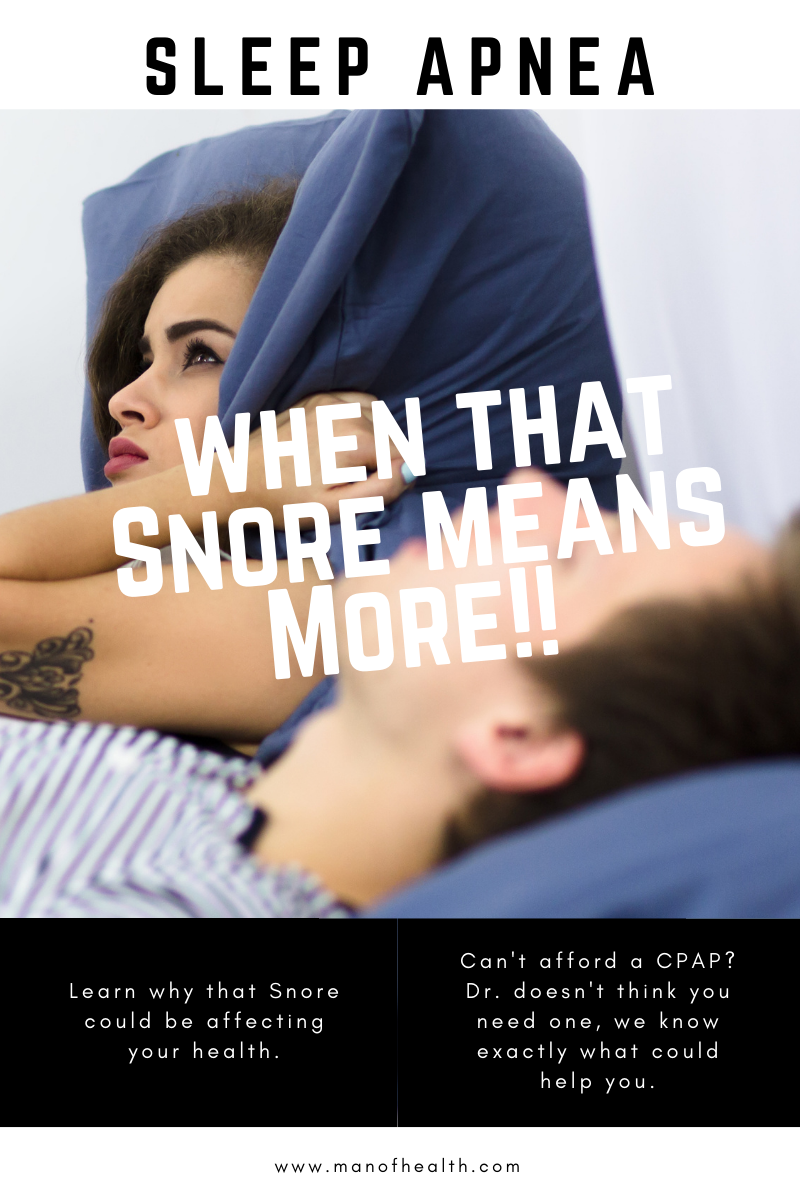
Sleep Apnea: Learn why that Snore could mean More.
- Post author:Christopher C
- Post published:March 12, 2021
- Post category:Physical Health
First if you never heard of sleep apnea that means your blessed. People who have or no someone with sleep apnea know all to well how serious this issue is.
In this post we are going to discuss sleep apnea.
We are going to talk about:
- What is sleep apnea?
- What causes sleep apnea?
- What are the symptoms of sleep apnea?
- What treatments do they have?
- Complications?
- When to talk to your doctor about sleep apnea?
- What to do if you don’t have sleep apnea but your snoring is an issue?
Let’s Begin
What is Sleep Apnea?
Sleep apnea is when people have a hard time breathing while sleeping. People with sleep apnea usually stop breathing repeatedly during there sleep cycle. Sleep apnea is three times more common in men than women.
There are 3 types of sleep apnea:
- Obstructive sleep apnea: is the most common and occurs because of obstruction. Airflow stops because of an obstructive pharynx (throat muscles).
- Central sleep apnea: is when the respiratory system stops during sleep. With central sleep apnea your respiratory drive stops.
- Mixed (Complex): is a combination of both obstructive and central.
What causes sleep apnea?
Sleep apnea can be causes by an obstruction or your central nervous system.
The risk Factors for sleep apnea are:
Sleep deprivation
Central nervous system medications
Chronic nasal congestion
Obesity
Middle age
Alcohol and tobacco use
Family history
What are the symptoms of sleep apnea?
Daytime sleepiness
Loud snoring
Gasping or choking during sleep
Nigh-time high blood pressure
Morning headache
Complications that could occur from sleep apnea
- People with sleep apnea have an increase risk for stroke.
- High blood pressure is closely associated with sleep apnea.
- Safety issues from a lack of sleep at night (motor vehicle accidents)
When to talk to your provider about sleep apnea?
It is beneficial to talk to your provider at any time. If you are having any of the symptoms of sleep apnea let them know, and they can order the appropriate test.
What treatments do they have for sleep apnea?
One of the treatments for sleep apnea is a CPAP (continuous positive airway pressure). This positive pressure helps prevent the airway from becoming obstructed. A CPAP is never used with central sleep apnea. A CPAP machine can be purchased with your insurance, but without insurance it can cost anywhere between 500-3000. Your provider will let you know if a CPAP is right for you.
What to do if I don’t have sleep apnea but I snore?
If your provider has ruled out sleep apnea, but you are still having a snoring issue we suggest using Snorple. Snorple is a device that helps you stop snoring. The Snorple has its patented Tongue Bumper, which stops your tongue from obstructing your throat.
If snoring is a problem for you and your partner give Snorple a try. They have a 100% Money Back Guarantee.

Share via:


